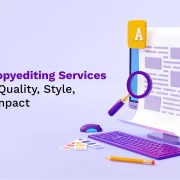A REST API is an architectural style and set of constraints for building web services. It defines how client-server communication should occur using standard HTTP methods like GET, POST, PUT, and DELETE to access and manipulate resources identified by URLs. Utilizing a stateless communication model, REST APIs offer scalability, flexibility, and interoperability, making them a cornerstone for modern web and mobile application development at Hurix Digital.
What is REST API?
REST API (Representational State Transfer Application Programming Interface) is a software architectural style that defines a set of constraints to be used for creating web services. Think of it as a standardized way for different computer systems to communicate with each other over the internet.
Instead of defining complex communication protocols, REST leverages the existing HTTP protocol (the foundation of the web) and uses standard HTTP methods like GET, POST, PUT, and DELETE to perform operations on resources. These resources are identified by URLs (Uniform Resource Locators).
Key characteristics of a REST API include:
- Stateless: Each request from a client to a server must contain all the information needed to understand the request. The server doesn’t store any client context between requests.
- Client-Server: A clear separation of concerns, allowing the client and server to evolve independently.
- Cacheable: Responses from the server should be explicitly labeled as cacheable or non-cacheable to improve efficiency.
- Layered System: The client doesn’t need to know if it’s communicating directly with the end server or with intermediaries along the way.
- Uniform Interface: This is the cornerstone of REST and includes principles like resource identification, manipulation through representations, self-descriptive messages, and hypermedia as the engine of application state (HATEOAS).
In simple terms, a REST API allows different applications, written in different languages and running on different platforms, to easily exchange information and functionality. It’s a widely adopted standard for building web services due to its simplicity, scalability, and flexibility.
Why is REST API Important?
REST APIs (Representational State Transfer Application Programming Interfaces) have become a cornerstone of modern web development and digital communication. Their importance stems from the ability to enable seamless interaction between disparate software systems, regardless of their underlying technologies.
Interoperability and Flexibility: REST APIs promote interoperability by providing a standardized way for applications to communicate. They’re technology-agnostic, allowing systems built with different programming languages and platforms to exchange data effectively. This flexibility is crucial in today’s diverse technological landscape.
Scalability and Maintainability: The stateless nature of REST APIs, where each request contains all the necessary information, enhances scalability. Servers don’t need to retain session information, simplifying load balancing and reducing server overhead. This also improves maintainability as changes to one component have minimal impact on others.
Simplified Development: REST APIs simplify development by providing a clear and predictable structure for accessing resources. The use of standard HTTP methods (GET, POST, PUT, DELETE) makes them intuitive for developers to understand and implement. This accelerates development cycles and reduces the learning curve.
Ubiquitous Integration: From mobile apps and web applications to IoT devices and cloud services, REST APIs facilitate seamless integration across a wide range of platforms. This enables the creation of connected ecosystems and enhances user experiences by delivering data and functionality where it’s needed most.
In conclusion, REST APIs are important because they foster interoperability, enhance scalability, simplify development, and enable ubiquitous integration, making them essential for building modern, connected applications and digital services.
How Does a REST API Work?
REST APIs (Representational State Transfer Application Programming Interfaces) are the backbone of modern web communication, allowing different applications to exchange data seamlessly. But how exactly does this happen?
The process revolves around a client (like a web browser or mobile app) making a request to a server. This request is structured using HTTP methods, the most common being:
- GET: Retrieves data from the server.
- POST: Creates new data on the server.
- PUT: Updates existing data on the server (replaces the entire resource).
- PATCH: Partially updates existing data on the server.
- DELETE: Deletes data from the server.
Each request targets a specific resource identified by a URL (Uniform Resource Locator), also known as an endpoint. For example, /users/123 might represent a specific user with the ID 123.
The server then processes the request and sends back a response. This response typically includes:
- Status Code: A numerical code indicating the success or failure of the request (e.g., 200 OK, 404 Not Found, 500 Internal Server Error).
- Headers: Metadata about the response, such as content type.
- Body: The actual data being returned, often in a structured format like JSON (JavaScript Object Notation) or XML (Extensible Markup Language). JSON is favored due to its simplicity and readability.
The client then parses the response and uses the data as needed. The beauty of REST APIs lies in their stateless nature. Each request from the client contains all the information the server needs to understand and process it. The server doesn’t need to remember any previous interactions, ensuring scalability and reliability. This request-response cycle, using standard HTTP methods and data formats, enables efficient and interoperable communication between diverse applications.
REST API Examples: How Leading Brands Leverage Them
REST APIs power seamless integrations and data exchange for some of the world’s most recognizable brands. Here are a few examples:
Netflix: Netflix employs REST APIs extensively for its streaming service. They use APIs to manage user accounts, track viewing history, recommend content, and handle billing. Their API allows devices like smart TVs and game consoles to easily access and display Netflix content, regardless of the underlying hardware.
Twitter (X): Twitter (now X) heavily relies on REST APIs for developers to build third-party applications. These APIs allow developers to access public tweet data, post tweets on behalf of users (with permission), manage follower relationships, and stream real-time data. This open API fosters a vibrant ecosystem of Twitter-related applications.
Google Maps: Google Maps provides a REST API that allows developers to embed maps, geocode addresses, find points of interest, and calculate routes within their own applications. This is crucial for businesses needing location-based services, such as delivery companies or travel agencies.
Salesforce: Salesforce utilizes REST APIs to enable integrations with other business systems. This allows businesses to connect their CRM data with marketing automation platforms, accounting software, and other critical tools, creating a unified view of customer information.
Amazon: Amazon utilizes REST APIs across various services including their e-commerce platform and AWS cloud services. Their APIs facilitate product searches, order placement, payment processing and management of cloud resources like virtual machines and storage. They allow other businesses to leverage Amazon’s infrastructure and services.
These examples demonstrate the versatility and power of REST APIs in connecting different systems and creating enhanced user experiences. By leveraging RESTful architecture, these brands enable developers to build innovative applications and services that seamlessly integrate with their platforms.
Key Benefits of REST APIs
REST APIs (Representational State Transfer Application Programming Interfaces) offer a multitude of benefits, making them a cornerstone of modern web and mobile application development. Their architectural style fosters simplicity, scalability, and interoperability.
1. Simplicity and Ease of Use: REST APIs are designed with simplicity in mind. Using standard HTTP methods (GET, POST, PUT, DELETE) and clear data formats like JSON, they are easy to understand and implement, reducing development time and complexity. This lowers the barrier to entry for developers, leading to faster integration and innovation.
2. Scalability: REST APIs are inherently scalable. The stateless nature of REST interactions, where each request contains all necessary information, allows servers to handle requests independently. This means that adding more servers to handle increased traffic is a straightforward process, ensuring high availability and performance.
3. Interoperability: REST APIs promote interoperability by adhering to open standards. They can be used with virtually any programming language or platform, enabling seamless communication between disparate systems. This flexibility allows businesses to integrate diverse applications and services effortlessly.
4. Flexibility and Adaptability: REST APIs are highly flexible, supporting various data formats and adapting to changing requirements. This adaptability makes them ideal for evolving business needs and integration with new technologies. They are also well-suited for building microservices architectures.
5. Caching Efficiency: REST APIs leverage HTTP caching mechanisms to improve performance and reduce server load. Responses can be cached at various levels (client, proxy, server), leading to faster response times and a better user experience.
6. Independent Evolution: Because the client and server are decoupled, they can evolve independently without affecting each other. Changes to the server-side API do not necessarily require changes to the client application, and vice versa, reducing the risk of breaking integrations.
Common Misconceptions Around REST APIs
REST APIs, or Representational State Transfer APIs, are a popular architectural style for building web services. However, several misconceptions often cloud understanding and proper implementation.
Misconception 1: REST equals HTTP. While REST APIs commonly use HTTP, it’s not a requirement. REST is an architectural style; HTTP is a protocol often used to implement it. REST principles could theoretically be applied using other protocols.
Misconception 2: REST APIs must use JSON. JSON is a popular data format due to its simplicity and wide support, but REST doesn’t mandate it. XML, YAML, or even plain text can be used as long as the representation is consistent and understandable.
Misconception 3: All APIs are RESTful. Simply using HTTP doesn’t make an API RESTful. A true REST API adheres to constraints like statelessness, a uniform interface (using standard HTTP methods like GET, POST, PUT, DELETE), cacheability, and a layered system.
Misconception 4: REST APIs require a specific framework. While frameworks like Spring (Java), Django REST framework (Python), or Express.js (Node.js) simplify API development, they aren’t mandatory. REST principles can be implemented without a specific framework, though it may require more manual coding.
Misconception 5: REST is only for simple CRUD operations. REST APIs can handle complex business logic and workflows beyond basic Create, Read, Update, and Delete operations. They provide a flexible way to expose application functionality.
Understanding and dispelling these misconceptions is crucial for building robust, scalable, and maintainable REST APIs that properly leverage the architectural style’s advantages.




